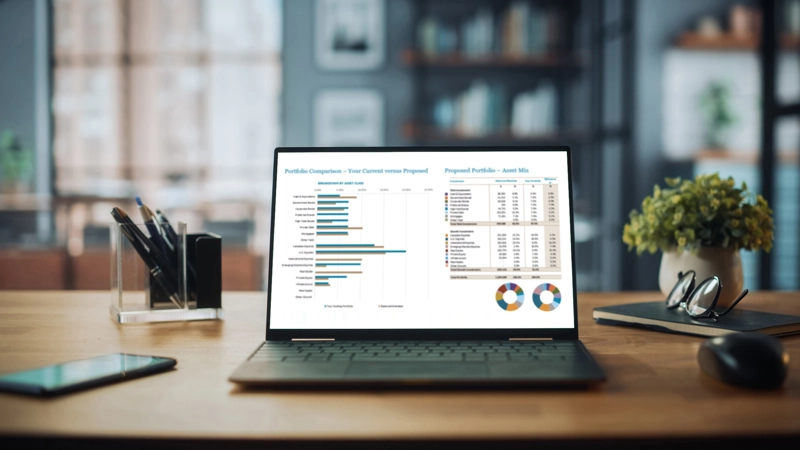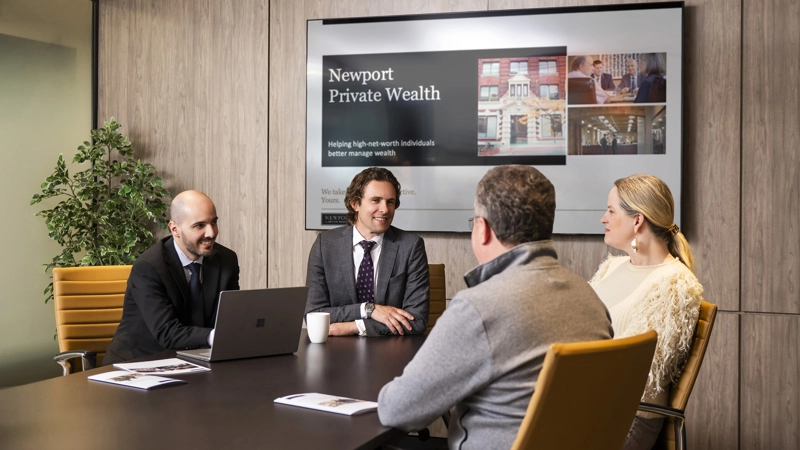We take a different perspective.
Learn More
We take a different perspective.
Yours.
Your goals. Our priority.
At Newport, we manage private wealth with the same care and conviction as if it were our own—bringing deep expertise and a steadfast commitment to what matters most: your financial future.

Your goals. Our priority.
At Newport, we manage private wealth with the same care and conviction as if it were our own—bringing deep expertise and a steadfast commitment to what matters most: your financial future.
A smarter way to invest
At Newport, our endowment-style investment platform gives you access to sophisticated strategies typically out of reach for individual investors—helping you diversify with confidence, not complexity.
See how we invest differently—and why it matters to your wealth

A smarter way to invest
At Newport, our endowment-style investment platform gives you access to sophisticated strategies typically out of reach for individual investors—helping you diversify with confidence, not complexity.
See how we invest differently—and why it matters to your wealth
Trusted expertise, proven leadership
Our team brings together seasoned wealth and investment professionals—each with a track record of guiding clients through complex financial decisions with clarity and confidence.

Trusted expertise, proven leadership
Our team brings together seasoned wealth and investment professionals—each with a track record of guiding clients through complex financial decisions with clarity and confidence.
Your goals. Our priority.
At Newport, we manage private wealth with the same care and conviction as if it were our own—bringing deep expertise and a steadfast commitment to what matters most: your financial future.

Your goals. Our priority.
At Newport, we manage private wealth with the same care and conviction as if it were our own—bringing deep expertise and a steadfast commitment to what matters most: your financial future.
A smarter way to invest
At Newport, our endowment-style investment platform gives you access to sophisticated strategies typically out of reach for individual investors—helping you diversify with confidence, not complexity.
See how we invest differently—and why it matters to your wealth

A smarter way to invest
At Newport, our endowment-style investment platform gives you access to sophisticated strategies typically out of reach for individual investors—helping you diversify with confidence, not complexity.
See how we invest differently—and why it matters to your wealth
Trusted expertise, proven leadership
Our team brings together seasoned wealth and investment professionals—each with a track record of guiding clients through complex financial decisions with clarity and confidence.

Trusted expertise, proven leadership
Our team brings together seasoned wealth and investment professionals—each with a track record of guiding clients through complex financial decisions with clarity and confidence.
The Newport Approach
We view investment management and wealth planning as interconnected elements of a single, thoughtful strategy. Every investment decision is made in the context of your broader financial picture—ensuring your portfolio not only performs, but also supports your goals, lifestyle, and legacy. It’s a comprehensive approach designed to bring clarity, confidence, and long-term results.
Lasting financial success comes from aligning how your wealth is invested with how you want to live, give, and grow. That’s why we integrate portfolio performance with thoughtful planning—to protect, grow, and sustain your wealth across generations.

The Newport Approach
We view investment management and wealth planning as interconnected elements of a single, thoughtful strategy. Every investment decision is made in the context of your broader financial picture—ensuring your portfolio not only performs, but also supports your goals, lifestyle, and legacy. It’s a comprehensive approach designed to bring clarity, confidence, and long-term results.
Lasting financial success comes from aligning how your wealth is invested with how you want to live, give, and grow. That’s why we integrate portfolio performance with thoughtful planning—to protect, grow, and sustain your wealth across generations.

Experienced. Focused. Accountable.
Get to know the professionals behind Newport’s disciplined approach to wealth management.
Newport Insights
Subscribe to Insights
*Please refer to our Privacy Policy to find out how we protect your information.





